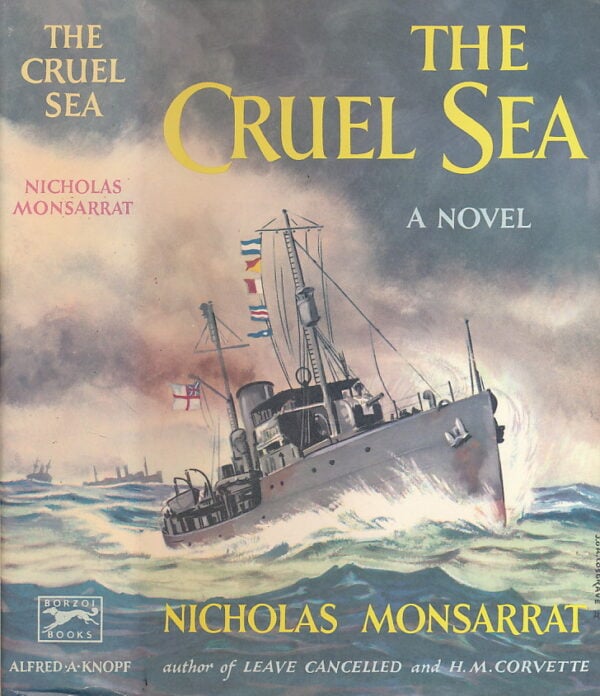The Cruel Sea
€6,00
Nema na zalihi
| Težina | 1103 g |
|---|---|
| Format | 15 × 22 cm |
| Autor | |
| Izdavač | |
| Mjesto izdanja | New York |
| Godina | 1988 |
| Broj stranica | 509 |
| Uvez | Tvrdi |
| Stanje knjige | Vrlo dobro |
Born on Rodney Street in Liverpool, Monsarrat was educated at Winchester and Trinity College, Cambridge. He intended to practise law. The law failed to inspire him, however, and he turned instead to writing, moving to London and supporting himself as a freelance writer for newspapers while writing four novels and a play in the space of five years (1934–1939). He later commented in his autobiography that the 1931 Invergordon Naval Mutiny influenced his interest in politics and social and economic issues after college. Though a pacifist, Monsarrat served in World War II, first as a member of an ambulance brigade and then as a member of the Royal Naval Volunteer Reserve (RNVR). His lifelong love of sailing made him a capable naval officer, and he served with distinction in a series of small warships assigned to escort convoys and protect them from enemy attack. Monsarrat ended the war as commander of a frigate, and drew on his wartime experience in his postwar sea stories. During his wartime service, Monsarrat claimed to have seen the ghost ship Flying Dutchman while sailing the Pacific, near the location where the young King George V had seen her in 1881. Resigning his wartime commission in 1946, Monsarrat entered the diplomatic service. He was posted at first to Johannesburg, South Africa and then, in 1953, to Ottawa, Canada. He turned to writing full-time in 1959, settling first on Guernsey, in the Channel Islands, and later on the Mediterranean island of Gozo (Malta). Monsarrat’s first three novels, published in 1934–1937 and now out of print, were realistic treatments of modern social problems informed by his leftist politics. His fourth novel and first major work, This Is The Schoolroom, took a different approach. The story of a young, idealistic, aspiring writer coming to grips with the real world for the first time, it is at least partly autobiographical. The Cruel Sea (1951), Monsarrat’s first postwar novel, is widely regarded as his finest work, and is the only one of his novels that is still widely read. Based on his own wartime service, it followed the young naval officer Keith Lockhart through a series of postings in corvettes and frigates. It was one of the first novels to depict life aboard the vital, but unglamorous, small ships of World War II—ships for which the sea was as much a threat as the Germans. Monsarrat’s short-story collections H.M.S. Marlborough Will Enter Harbour (1949), and The Ship That Died of Shame (1959) mined the same literary vein, and gained popularity by association with The Cruel Sea.
